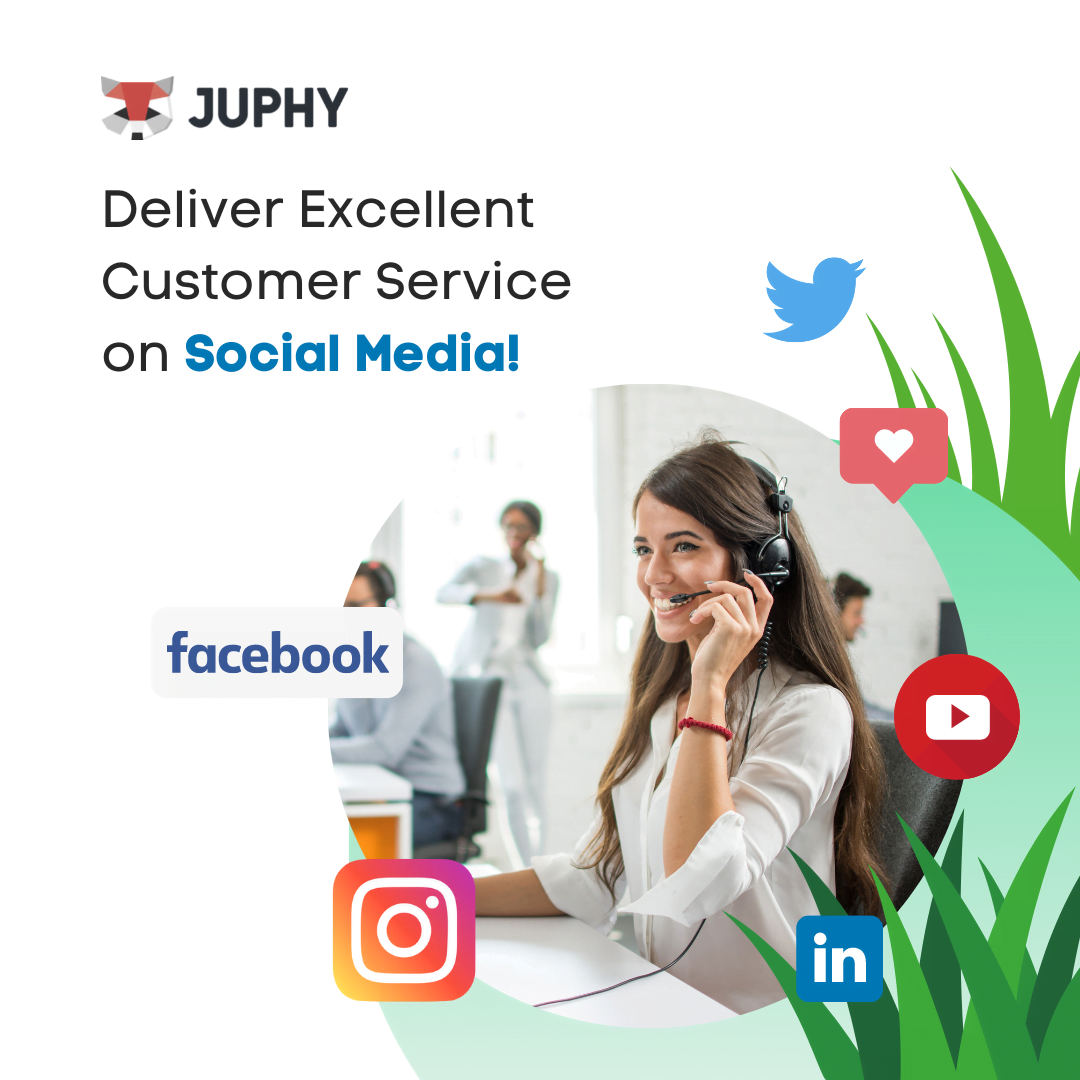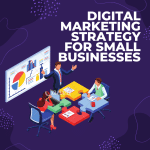Many smaller companies don’t have the resources to fund a comprehensive digital marketing effort, but there are still economical methods to promote the business without spending too much.
This article will discuss some tips and strategies for digital marketing on a budget, including leveraging free online tools, utilizing social media, and optimizing content for SEO.
What is digital marketing?
- Digital marketing is a form of marketing that uses digital technologies and channels to reach customers.
- It helps businesses create an interactive relationship with their audience.
- It can be used to promote products, services, and brand awareness.
Benefits of Digital Marketing on a Budget
Businesses of all sizes are recognizing the power of digital marketing to reach their target audience effectively and efficiently. While some may assume that digital marketing requires a hefty budget, it is indeed possible to achieve remarkable results even with limited resources. This article will delve into the benefits of digital marketing on a budget, highlighting how cost-effective strategies can help businesses thrive in the online landscape.
- Cost-effectiveness: One of the most significant advantages of digital marketing on a budget is its cost-effectiveness compared to traditional marketing methods. Digital channels provide various affordable options to promote your business, such as social media advertising, email marketing, content creation, and search engine optimization (SEO). These strategies allow you to reach a wide audience without breaking the bank, making it ideal for businesses with limited marketing resources.
- Targeted audience reach: Digital marketing enables precise audience targeting, ensuring that your message reaches the right people. With platforms like social media, search engines, and display advertising, you can specify the demographics, interests, behaviours, and even geographical locations of your target audience. This level of targeting minimizes wasteful spending on irrelevant audiences, ultimately maximizing the impact of your marketing efforts.
- Measurable results: Unlike traditional marketing methods, digital marketing provides comprehensive analytics and data tracking capabilities. With the help of tools like Google Analytics, you can measure the performance of your campaigns in real time. This data allows you to evaluate the effectiveness of your marketing strategies and make data-driven decisions to optimize your campaigns further. By understanding what works and what doesn’t, you can refine your approach, leading to better results over time.
- Flexibility and scalability: Digital marketing offers unparalleled flexibility, allowing you to adjust your strategies based on your budget and business goals. You can start small, targeting specific segments, and gradually scale up as you see positive results. Digital platforms also provide the flexibility to modify campaigns in real-time, enabling you to respond quickly to market changes and customer feedback. This agility ensures that your marketing efforts remain relevant and effective throughout your budget allocation.
- Enhanced brand visibility: Even with a limited budget, digital marketing can significantly improve your brand’s visibility and online presence. Through strategies like search engine optimization (SEO), content marketing, and social media engagement, you can increase your website’s organic visibility, attract more traffic, and build brand awareness. By consistently delivering valuable and engaging content to your target audience, you can establish your brand as an authority in your industry, driving customer trust and loyalty.
- Increased customer engagement: Digital marketing provides numerous opportunities to engage with your target audience and build meaningful relationships. Social media platforms, email newsletters, and interactive website features allow you to interact directly with your customers, address their queries, and provide personalized experiences. By actively engaging with your audience, you can foster customer loyalty, generate valuable feedback, and improve your overall business performance.
Tips and Strategies
Invest in SEO and Content Marketing
Search engine optimization (SEO) and content marketing are two of the most cost-effective digital marketing strategies. SEO helps increase website visibility in search engine results, while content marketing helps engage and educate potential customers. Investing in both of these strategies can help drive more traffic to your website and increase conversions.
Search engine optimization (SEO) is vital for improving your website’s visibility in search engine results pages (SERPs) and attracting organic traffic. Conduct keyword research to identify relevant and high-performing keywords related to your business. Optimise your website’s on-page elements, including meta tags, headings, and content, to align with these keywords. Additionally, build quality backlinks from reputable websites to enhance your website’s authority and search engine rankings.
Content marketing is a highly cost-effective strategy that can yield impressive results. Create and distribute valuable, relevant, and engaging content to attract and retain your target audience. This can include blog posts, articles, infographics, videos, and social media posts. By consistently providing valuable content, you can establish your brand’s authority, drive organic traffic, and generate leads without significant financial investment.
According to a recent SEMrush study on the state of content marketing, 62% of marketers are planning to increase their content marketing budget this coming year.
https://www.outbrain.com/blog/marketing-budget-planning/
Utilize Social Media
Social media platforms offer incredible opportunities for businesses to connect with their audience at a minimal cost. Identify the platforms where your target audience is most active and focus your efforts there. Develop a consistent posting schedule and create engaging content that encourages interaction and sharing. Utilize features such as hashtags, user-generated content, and social media contests to expand your reach and increase brand visibility.
- Create engaging content to attract followers
- Leverage existing brand relationships
- Utilize analytics to optimize campaigns
Changes In Social Media Platform Investments Social media ad spending is expected to reach an astounding $56 billion in 2022, according to an eMarketer survey in late 2020.
https://www.webstrategiesinc.com/blog/how-much-budget-for-online-marketing
Experiment with Paid Ads
Regularly monitor the performance of your digital marketing campaigns to identify areas for improvement and optimize your strategies. Utilize analytics tools such as Google Analytics, social media insights, and email marketing analytics to track key metrics, such as website traffic, conversion rates, engagement levels, and ROI. Analyze the data to identify successful tactics and areas that require adjustment. Make data-driven decisions and continuously refine your campaigns to maximize results within your budget.
- Use A/B testing to determine best-performing ads
- Set a budget and stick to it to minimize costs
- Utilize retargeting to stay top of mind
Take Advantage of Affiliate Marketing
Affiliate marketing is a powerful strategy that allows businesses to leverage the influence of others to promote their products or services. By partnering with affiliates who earn a commission for each sale they generate, businesses can tap into a vast network of marketers without significant upfront costs. In this article, we will explore how businesses can take advantage of affiliate marketing to enhance their digital marketing efforts, even on a limited budget.
Find relevant affiliate partners:
To make the most of affiliate marketing, it’s crucial to find affiliates who are aligned with your target audience and industry. Look for bloggers, influencers, content creators, or website owners whose audience overlaps with your target market. Engage in outreach efforts, attend industry events, and join affiliate networks to discover potential partners. By collaborating with affiliates who already have an engaged audience, you can expand your reach effectively and increase your chances of generating sales.
Offer attractive commission structures:
To entice affiliates to promote your products or services, offer competitive commission rates and attractive incentives. Consider a commission structure that provides affiliates with higher rates for driving more sales or reaching specific targets. Additionally, provide performance-based incentives, such as bonuses for top-performing affiliates or exclusive discounts for their audience. By offering appealing incentives, you can motivate affiliates to actively promote your brand and achieve better results.
Provide quality marketing materials:
Equip your affiliates with high-quality marketing materials, including banners, product images, videos, and promotional content. Ensure that these materials are visually appealing, informative, and aligned with your brand identity. By providing ready-to-use marketing materials, you make it easier for affiliates to promote your products effectively. Additionally, consider creating unique landing pages or discount codes exclusively for affiliates to track their performance accurately.
Establish clear communication channels:
Maintaining open and effective communication channels with your affiliates is vital for a successful affiliate marketing program. Provide them with the necessary support, guidance, and resources to ensure they have the information they need to accurately promote your products. Regularly share updates, product releases, and marketing strategies with your affiliates. Consider organizing webinars, providing email newsletters, or setting up a dedicated affiliate portal to foster engagement and collaboration.
Monitor and optimize affiliate campaigns:
Regularly monitor the performance of your affiliate marketing campaigns to identify areas for improvement and optimize your strategies. Utilize tracking tools and affiliate management platforms to track affiliate-generated traffic, conversions, and sales.
Analyze the data to identify top-performing affiliates, successful promotional tactics, and areas that require adjustments. Provide feedback and guidance to affiliates to help them improve their marketing efforts. By continuously monitoring and optimizing your affiliate campaigns, you can maximize the ROI of your affiliate marketing activities.
Build relationships and foster loyalty:
Invest in building strong relationships with your affiliates by providing exceptional support and recognizing their efforts. Offer personalized incentives, exclusive promotions, or early access to new products or features. Create a sense of community by organizing affiliate meetups or online forums where affiliates can connect, share best practices, and learn from each other. By fostering loyalty and strong relationships, you can encourage long-term partnerships, which can lead to sustained growth and increased brand advocacy.
- Partner with influencers and other brands
- Analyze customer data to target relevant audiences
- Offer incentives to increase conversions
Leverage Influencer Marketing
Partnering with influencers and industry partners can be an effective way to expand your reach and gain credibility without a substantial financial investment. Identify relevant influencers or businesses with a similar target audience and propose mutually beneficial collaborations. This can include guest blogging, co-creating content, hosting joint webinars, or cross-promoting each other’s products or services. By leveraging the existing audience and influence of others, you can amplify your brand’s visibility and attract new customers.
- Identify influencers with large, engaged followings
- Utilize influencer’s style and interests in campaigns
- Track performance to adjust strategy
Conclusion
- Utilize customer feedback to refine strategies
- Monitor competitors to stay ahead of the competition
- Take advantage of free marketing tools and resources
By following these tips and strategies, businesses of all sizes can effectively market their products and services on a budget. Additionally, you should take advantage of the many free marketing tools and resources available online. These tools can help you create effective campaigns, track their progress, and measure their success. With the right approach, businesses can maximize their marketing efforts and reach their target audience without breaking the bank.
FAQs
Q: Is digital marketing expensive?
A: Digital marketing can be highly cost-effective compared to traditional marketing methods. There are numerous affordable options available, such as social media advertising, email marketing, content creation, and search engine optimization (SEO). By strategically allocating your budget and focusing on targeted digital channels, you can achieve remarkable results without breaking the bank.
Q: Can digital marketing help small businesses with limited budgets?
A: Absolutely! Digital marketing is particularly beneficial for small businesses with limited budgets. It provides opportunities to reach a wide audience through cost-effective strategies. By precisely targeting your audience, measuring results, and making data-driven decisions, you can maximize the impact of your marketing efforts within your budgetary constraints.
Q: How can digital marketing help in reaching a targeted audience?
A: Digital marketing offers precise audience targeting capabilities. Platforms like social media, search engines, and display advertising allow you to specify demographics, interests, behaviours, and even geographical locations of your target audience. This level of targeting minimizes wasteful spending on irrelevant audiences and ensures that your message reaches the right people, increasing the effectiveness of your marketing campaigns.
Q: Can I measure the results of my digital marketing campaigns?
A: Yes, one of the significant advantages of digital marketing is the ability to measure results. Tools like Google Analytics provide comprehensive analytics and data tracking capabilities. You can track key metrics such as website traffic, conversions, engagement rates, and ROI in real time. This data enables you to evaluate the effectiveness of your campaigns and make informed decisions to optimize your strategies for better results.
Q: Can I start small with digital marketing and then scale up?
A: Absolutely! Digital marketing offers flexibility and scalability. You can start with a small budget, targeting specific segments of your audience, and gradually scale up as you see positive results. Digital platforms also allow you to modify campaigns in real-time, responding quickly to market changes and customer feedback. This flexibility ensures that your marketing efforts remain relevant and effective as you allocate more resources over time.
Q: How does digital marketing enhance brand visibility?
A: Digital marketing significantly enhances brand visibility even on a limited budget. Through strategies like search engine optimization (SEO), content marketing, and social media engagement, you can increase your website’s organic visibility, attract more traffic, and build brand awareness. By consistently delivering valuable and engaging content to your target audience, you can establish your brand as an authority in your industry, driving customer trust and loyalty.
Q: Can digital marketing help in customer engagement?
A: Absolutely! Digital marketing provides numerous opportunities to engage with your target audience and build meaningful relationships. Social media platforms, email newsletters, and interactive website features enable direct interaction, allowing you to address customer queries and provide personalized experiences. By actively engaging with your audience, you can foster customer loyalty, generate valuable feedback, and improve overall business performance.
Q: How can digital marketing help in maximizing ROI?
A: Digital marketing’s ability to measure results and make data-driven decisions allows you to optimize your strategies for better ROI. By understanding what works and what doesn’t, you can refine your approach, allocate resources more effectively, and achieve higher returns on your marketing investment. Continuously monitoring campaign performance, testing different tactics, and adapting based on insights help maximize the ROI of your digital marketing efforts.












Leave a Comment
You must be logged in to post a comment